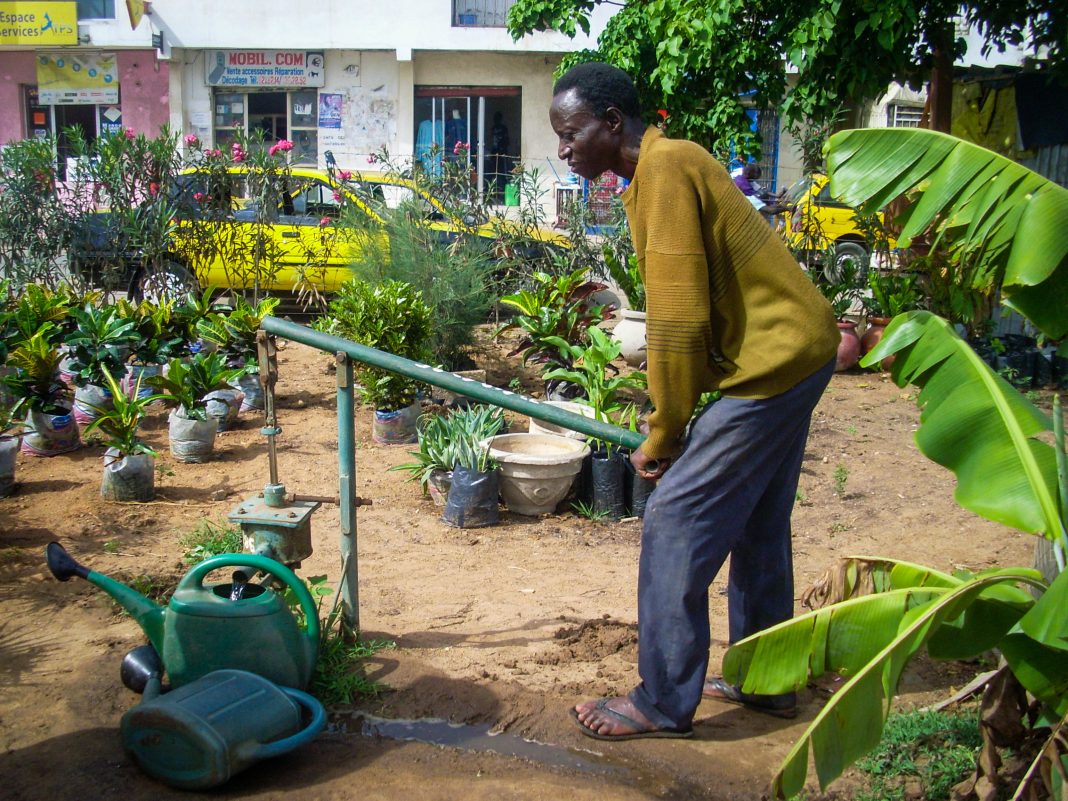In lands where proper growing soil is scarce, water supply is low, and food shortage is prevailing, cities need to resort to innovative means of obtaining the needed resources. The city of Dakar managed to do just that, and more: this Senegalese community transformed waste material into a food-growing, climate-change-fighting system, all with one single initiative, called Micro-Gardening in Dakar.
Micro-gardening in Dakar is a plan of action actively working towards reducing Dakar’s food scarcity. Its vision is simple, easy-to-follow, yet effective, and promises a lot of positive changes. Ms. Ndeye Ndack Pouye Mbodj, the Coordinator of the Micro-Gardening Project, let us in on the insights of the programme.
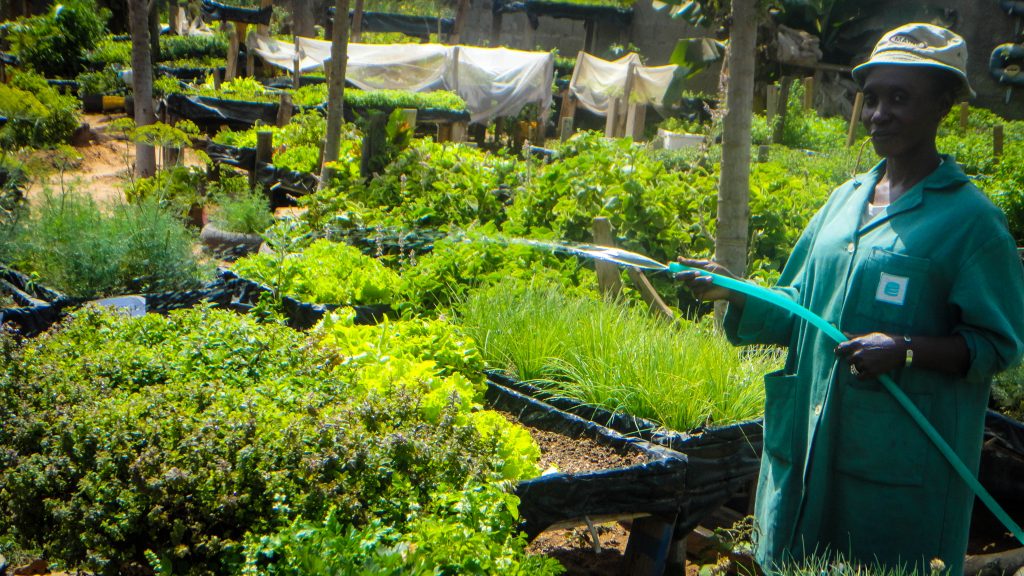
About Micro-Gardens in Dakar
Ever since the 1970s, the capital of Senegal has noticed an increase in the number of inhabitants, the consequences of which are lack of stability and malnutrition. The land was already compromised by the effects of climate change before, but the recent urbanisation has caused an increase in food prices, putting the food security of a vulnerable group of residents in danger. Micro-gardening in Dakar, therefore, presents an ongoing fight against poverty, and fights for food, nutritional security, and contributes to social stability.
“The challenge is feeding a vulnerable population healthily even though there is a lack of urban and peri-urban agricultural areas.”
The project was introduced in Dakar in 2004 by the Food and Agricultural Organization of the United Nations (FAO). “For the city of Dakar, micro-gardening is the fruit of decentralised cooperation between the cities of Milan and Dakar with the FAO as a strategic partner,” informs Ndeye. The project benefited monetarily from three-party financing: the city of Milan, the Italian government with Italian cooperation, and the city of Dakar.
So, what exactly separates micro-gardening from the usual form of gardening? Micro-gardening is gardening in small spaces (e.g. on balconies, patios), with the help of various containers (from crates, and old car tires, to plastic buckets). This technique is perfect for city dwellers, as these types of gardens don’t require a lot of space, they produce crops naturally, can include rainwater harvesting features in their systems, and help with the management of household waste.
They are the perfect, simple solution for an area lacking in green grounds and water; micro-gardening requires very little water, it contributes to the greening of the city, helps with greenhouse gas reduction, and uses recycled materials – all micro-gardening in Dakar is done on standing tables in recycled containers (such as wooden pallets, buckets, bottles, etc.). Even soil substrate is composed of recycled peanut shells and rice straws. In fact, micro-gardens are so easy to implement, FAO has issued a guidebook on creating your very own for anyone interested in owning one.
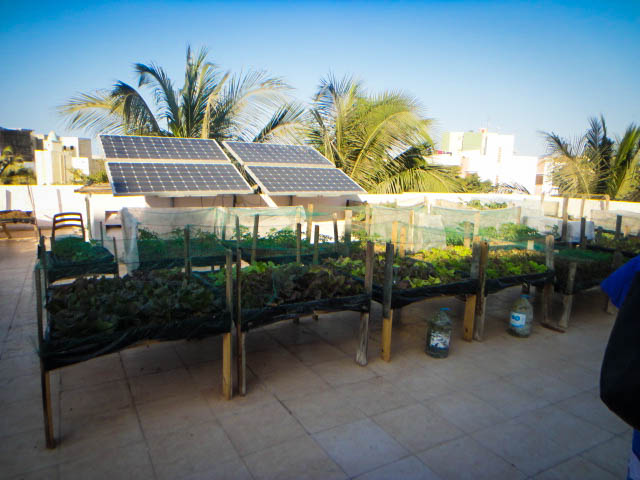
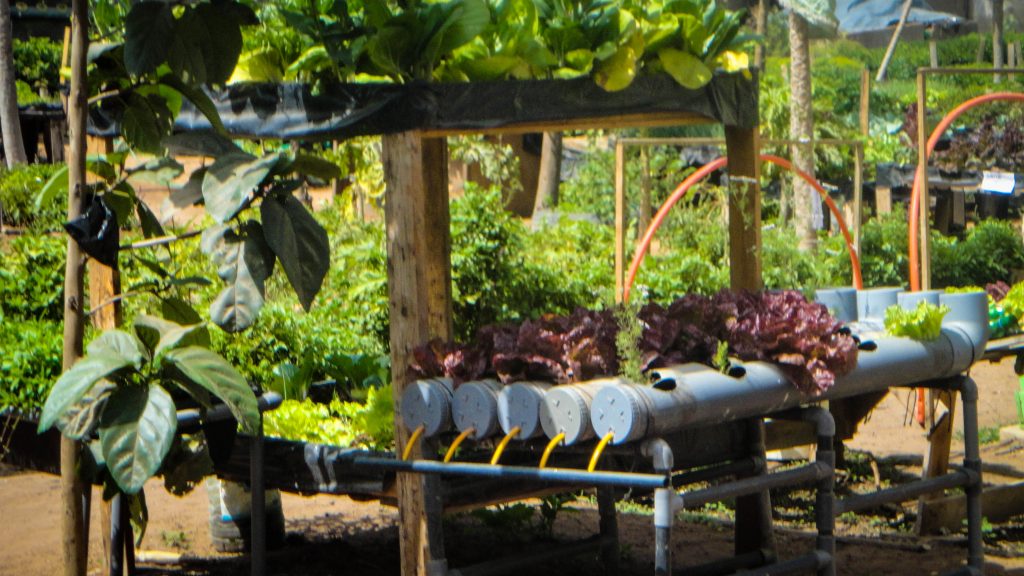
Since 2018, the project has expanded and now “covers the entire city of Dakar (19 municipalities), offers training in micro-gardening techniques and provides space dedicated for gardens within public spaces (e.g. schools),” reports FAO.
The Importance of the Project
Ndeye explains that any project contributing to the regreening of Dakar needs to be encouraged.
“Planting or reforestation of trees is necessary because Dakar is becoming a ‘concrete city’.”
Micro-gardens have, since their establishment, become the ‘green lungs’ for the city that is otherwise covered in concrete; they have become a source of oxygen and are helping to reduce CO2 emissions.
However, the project not only helps with the provision of food, combats climate change, teaches younger generations of the importance of environmental conservation and sustainable development, but also teaches about inclusion, too. Micro-gardens in Dakar work with vulnerable groups: the project includes women, young people, the elderly, disabled, inmates, etc.
“The community is the target, so it is essential to involve them even during the design phase in order to know their needs and to gain their support.”
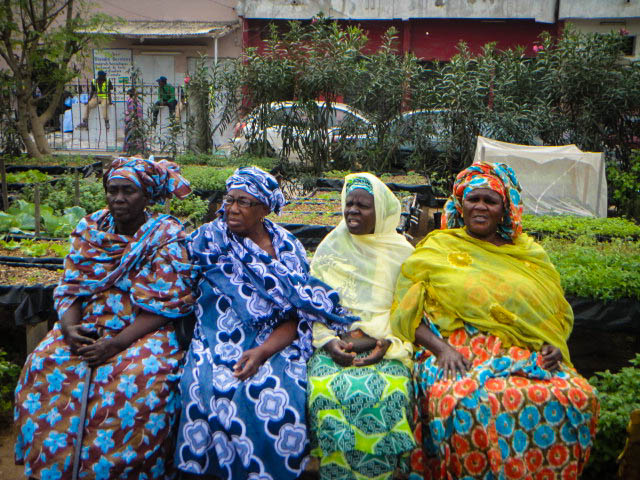
The Success Factor
One of the reasons why Micro-Gardening is a success is the beautiful simplicity of the project. FAO recognises the potential of the model to be replicated “both within Senegal and abroad, representing a valuable initiative to tackle climate change and food insecurity.”
Ndeye gives praise for the overall success of the project to the institutional support from the Mayor of Dakar and the local authorities, and to the involvement of all stakeholders for acting decisively – a much-needed quality, especially when the topic is about a very sensitive matter: food.
As for other significant achievements, Ndeye points out a few:
The Creation of ‘Green Employment’
More than 10,000 people benefited from training in micro-gardening, and more than 134 production sites have opened up. The beneficiaries were even able to carry out other related activities (e.g. processing of vegetables), too.
“It is a real generator of substantial income,” informs Ndeye.
The Involvement of Local Authorities
This has resulted in the installation of 12 training centres for micro-gardening techniques throughout Dakar, and the arrangement of secure production and water supplies.
The Huge Proportion of Participating Women and Young People
80% of beneficiaries are women, which is of higher importance considering that poverty particularly affects women: the very foundation of the family and the ones responsible for feeding their households.
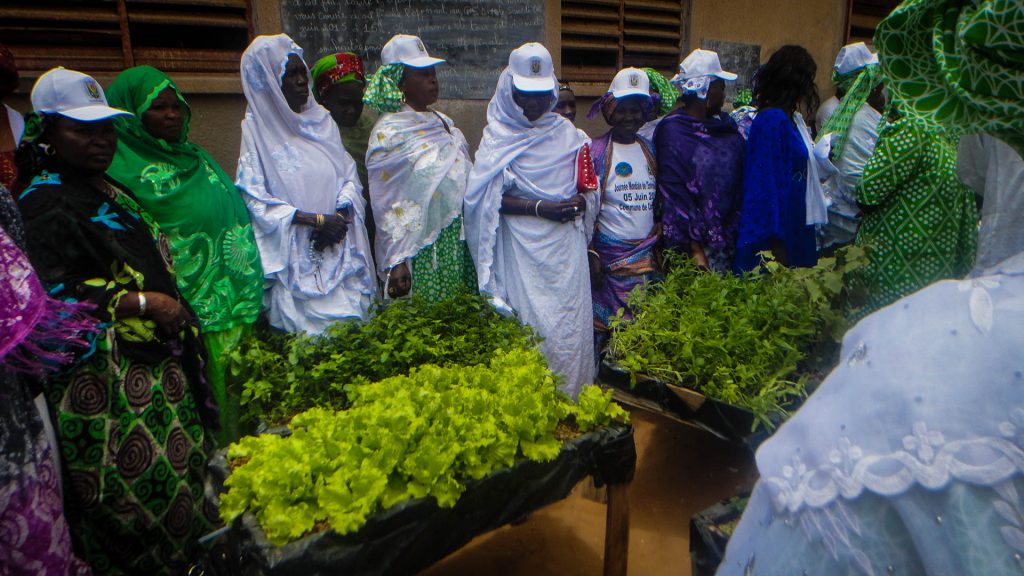
Visions for the Future
The Micro-Gardening project is integrated into the city’s master plan. The city wants to continue to support the programme by supplying agricultural equipment and establishing a purchasing centre. “The main aim is to continue micro-gardening activities in a sustainable manner,” adds Ndeye. However, because Dakar’s agriculture suffers from numerous climatic hazards, meeting an ever-increasing agricultural demand has become an issue – the financial means are therefore crucial to successfully continue with the project.
Linking It All Together
Micro-gardening in Dakar is an initiative worthy of notice. It not only presented Senegal’s capital with a fighting chance for food, social and job security, but also highlighted the importance of greenery in cities – concrete, or other. It goes to show how important the role of vegetation is when it comes to climate mitigation, and when it comes to the preservation of land for something so simple as feeding its inhabitants. With cities becoming more and more populated, the implementation of accessible systems, such as micro-gardens, might be the way to go.

